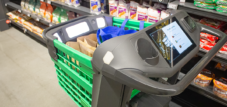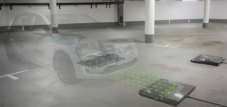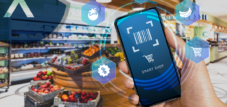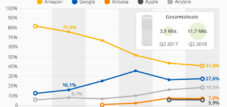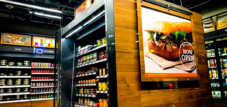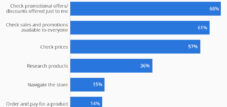Between tradition and technology: This is how the corner shop lives on in smart shopping models
Language selection 📢
Published on: December 6th, 2024 / Update from: December 6th, 2024 - Author: Konrad Wolfenstein
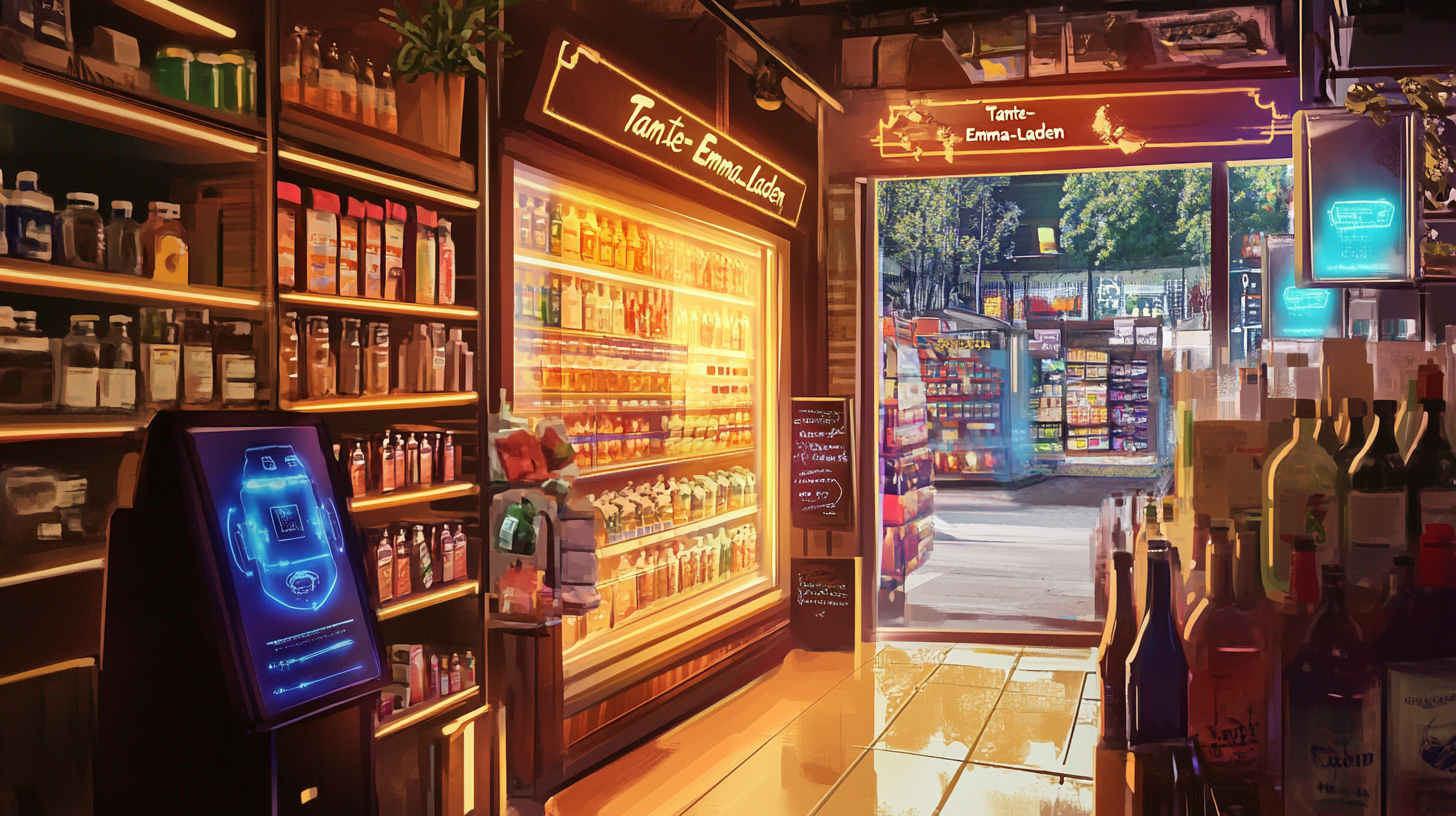
Between tradition and technology: This is how the corner shop lives on in smart shopping models - Image: Xpert.Digital
👩🍳🛒 The renaissance of the corner shop: tradition meets modernity
🌱✨ The business model of the classic corner shop has been an integral part of local supply in Germany, Austria and Switzerland for decades. These small, mostly family-run shops dominated the 1950s and 1960s in particular, before they gradually had to give way to the economic pressure of large supermarkets and discounters. But with the growing demand for sustainable consumption and personal service, some aspects of the mom-and-pop concept are now experiencing a modern renaissance - with innovative approaches that combine technology and tradition.
💡 What made the classic corner shop?
Mom and pop stores were known for their personal and customer-focused atmosphere. The term “mom and pop shop” is an affectionate term that conjures up the image of an intimate, almost familial relationship between store owners and customers. Unlike the anonymous shopping environments of supermarkets, the focus here was on personal care, trust and flexibility. The operators often knew their customers by name, were aware of their preferences and even made it possible to have them “written to us” so that products could only be paid for later.
These stores offered a limited selection of everyday items, including groceries, household goods, newspapers, and occasionally fresh local produce. Due to their small size and proximity to residential areas, they were particularly essential for rural regions or urban neighborhoods with little access to larger stores.
📉 Why did the corner shop disappear?
With the emergence of large supermarkets in the 1960s, the slow but steady decline of traditional corner shops began. The following main reasons led to the extinction of this business model:
1. Economic pressure from large retail chains
Supermarkets and discounters were able to offer a significantly wider range of products at lower prices. Due to their efficient logistics chains and their great market power, it was almost impossible for the small shops to remain competitive on price.
2. Limited supply and changing consumer behavior
The selection in corner shops was often reduced to a minimum, which no longer met the demands of modern consumers. The trend towards “everything under one roof” resulted in customers preferring larger stores that offered both food and non-food items.
3. Legal and economic changes
The abolition of price maintenance in the 1970s put many small retailers in distress. They were unable to absorb the price fluctuations of the wholesale markets and were pushed out by competition.
4. Urbanization and mobility
The increased migration to cities and the expansion of private transport contributed to rural corner shops becoming less and less frequented. At the same time, urban shopping centers offered a convenient and versatile alternative.
5. Shortage of staff and high operating costs
Since corner stores were often more complex to run - from personal customer service to purchasing goods - the costs for their operators rose. This led to falling margins and made long-term survival difficult.
🤖 Modern successors: Smart shopping models with traditional elements
Despite the decline of the classic corner shop, modern technologies and new business models have taken up and further developed the basic principles of this concept. The focus is on the values of local supply, personal service and sustainability. Here are some innovative approaches:
1. Smart Stores:
These automated stores – like “Tante Enso” or “Tante M” – combine the idea of local supply with modern technology. They are often open 24 hours a day, often do without staff and allow customers to scan their purchases themselves and pay digitally. The product range is geared towards everyday needs, similar to classic corner stores, supplemented by smart features such as app integration.
2. Cooperative models
In cooperative stores, customers are often co-owners at the same time. You have an influence on the product range and can help shape decisions for the store. These models promote local community and create a closer bond between customers and the business.
3. Grab-and-go stores
In stores like Amazon Go Stores, cameras and sensors automatically register which products customers take off the shelf. Payment is made digitally, making shopping more efficient and faster. This technology makes shopping as convenient as in corner stores, but with modern means.
4. Vending machine solutions
Vending machine kiosks are becoming increasingly popular, particularly in rural areas or as an addition to cities. They offer a limited range of groceries and household items and are available 24 hours a day. Some of these vending machines are even regularly stocked with fresh regional products, making them a modern version of the corner shop.
5. Regional products and hybrid business models
More and more small shops or online shops are placing emphasis on regional and sustainable products. Hybrid models combine on-site sales with digital ordering options or pickup services. This combination of traditional and modern approach appeals to customers who value quality and local products.
Suitable for:
🌟 Tradition meets modernity
Although the classic corner store hardly exists in its original form today, its core concept lives on in modern smart shopping models. The desire for personal proximity, sustainability and local support is increasingly being integrated into innovative business models. Especially at a time when many people are looking for alternatives to anonymous wholesale markets, these hybrid concepts could successfully carry the spirit of the corner shop into the 21st century.
📣 Similar topics
- 📣 How the corner shop inspires the future
- 🛒 From neighborhood help to smart shopping
- 🌱 Sustainability and locality: The renaissance of the mom-and-pop idea
- 🤖 Smart Stores: Tradition and technology hand in hand
- 🏡 Local supply rethought: The return of small shops
- ❤ Personal service 2.0: The values of the mom and pop concept in the digital age
- 💡 Innovation models for next-generation local businesses
- 📦 Regional products in focus: mom and pop for the modern world
- 🕰 From then to now: Why we miss the corner shop
- 🔗 Cooperative shops and community: Modern alternatives for better local supplies
#️⃣ Hashtags: #Sustainability #LocalSupply #SmartShopping #RegionalProducts #ZukunftDerLäden
🎯🎯🎯 Benefit from Xpert.Digital's extensive, fivefold expertise in a comprehensive service package | R&D, XR, PR & SEM

AI & XR 3D Rendering Machine: Fivefold expertise from Xpert.Digital in a comprehensive service package, R&D XR, PR & SEM - Image: Xpert.Digital
Xpert.Digital has in-depth knowledge of various industries. This allows us to develop tailor-made strategies that are tailored precisely to the requirements and challenges of your specific market segment. By continually analyzing market trends and following industry developments, we can act with foresight and offer innovative solutions. Through the combination of experience and knowledge, we generate added value and give our customers a decisive competitive advantage.
More about it here:
🎯 The advantages of smart stores
💡 The revival of local supply through smart stores
Smart stores are a modern answer to the challenges that traditional mom and pop shops could no longer overcome. They combine the basic values of local supply such as proximity and accessibility with the efficiency and possibilities of modern technologies. They take up innovative approaches such as automation, digital payment methods and flexible opening hours. Especially in rural regions, where there is often an undersupply, smart stores close the gaps in supply and offer people easy access to everyday products again.
Suitable for:
The strength of smart stores lies in the combination of various advantages that are attractive for both customers and operators. The main advantages are explained below:
🕒 1. 24/7 availability
One of the key advantages of smart stores is their 24/7 availability. In contrast to classic corner shops, which were often only open during the day, smart stores offer their customers maximum flexibility. These extended opening hours have immense added value, particularly for people with irregular working hours - for example in the healthcare sector, in the catering industry or in shift work - or in areas where there are otherwise no alternative shopping options.
⚡ 2. Efficiency and speed
Nobody likes standing in a checkout line for a long time. Smart stores circumvent this problem by using technologies such as self-scanning or Grab & Go. Customers pick the products they want directly from the shelves and the purchase is automatically billed when they leave the store. This saves time and makes purchasing unbureaucratic. The focus is on user-friendliness and efficiency – a decisive advantage over traditional models.
🛠️ 3. Reduced personnel costs
One of the main cost drivers for retailers is personnel costs. Smart stores operate either completely unmanned or with minimal staff, which drastically reduces operating costs. This makes it possible to operate efficiently even in economically more critical regions or in less frequented locations where a traditional store would not be profitable.
📊 4. Local adaptability
By using data-based technologies, it is possible to tailor the range of a smart store precisely to the needs of local people. Digital product labels and intelligent inventory management ensure that the right products are always available in sufficient quantities. This targeted adjustment ensures higher customer satisfaction while minimizing losses due to excess inventory.
🛍️ 5. Merging online and offline shopping
A big advantage of smart stores is their hybrid function: They combine the strengths of stationary retail with the advantages of online shopping. While customers can see, touch and select the products on site, supporting digital tools such as apps offer detailed information, recommendations or personalized offers. This creates an individual and comfortable shopping experience.
🌱 6. Sustainability and flexibility
Smart stores are often smaller and more space-efficient than traditional stores, which makes them particularly interesting for geographically limited or rural areas. Many of these stores are housed in modular containers or smaller buildings, reducing construction and rental costs. In addition, ecological sustainability is strengthened by the reduced energy and space requirements.
💳 7. Cashless payment and security
The ability to pay contactlessly via credit card, smartphone or other digital payment methods not only offers convenience, but also additional security. Not using cash reduces the risk of theft and at the same time simplifies handling for operators and customers.
🕐 8. Reduction in waiting times
One of the biggest frustrations when shopping – long waiting times – is almost eliminated in smart stores. Customers appreciate the ability to do their shopping quickly and easily, which significantly improves the entire shopping experience.
🏡 9. Strengthening local supplies and regionality
Smart stores can make an important contribution, particularly in rural areas, which are often affected by poor supply. In addition, they enable the distribution of regional products, which not only strengthens customer loyalty but also the local economy. This creates a win-win scenario that supports both the local community and small producers.
🤖 Technologies as a basis for modern local supply
The functionality of Smart Stores is based on several technological innovations. Sensors, cameras and artificial intelligence (AI) play a central role in automating processes in the store and optimizing the process for the customer. For example, customers can enter the store using a smartphone app, select products and have them automatically billed when they leave. Continuous monitoring of inventories and refilling of products are also automated, which increases efficiency enormously.
Another central component is data management. By analyzing purchasing behavior and preferences, operators can optimize their offers and adapt them to demand. This not only ensures a lower waste rate, but also higher customer satisfaction.
Despite all the advantages, there are also challenges that come with smart store concepts. The low or total lack of staff can, for example, reduce the social component of shopping, which many customers particularly value in corner shops. Hybrid models that rely on staff at least temporarily could represent a solution here.
Another topic is data security. Storing and evaluating customer data brings with it the responsibility of managing it securely and transparently. Modern data protection guidelines are therefore an essential part of this business model.
⚙️ Innovations with the advantages
Smart stores combine the strengths of the traditional corner shop with the possibilities offered by modern technologies. They are not only an economically viable model for the future of local supply, but also an opportunity to close former supply gaps and provide rural regions with better supplies again. Thanks to flexibility, efficiency and sustainability, they offer numerous advantages not only for operators, but above all for customers. This shows that digitalization not only boosts online retail, but can also revolutionize brick-and-mortar retail. Smart stores are therefore a clear example of how tradition and innovation can be successfully combined to overcome the challenges of modern society.
📣 Similar topics
- 📣 The return of the corner shops: Smart stores in focus
- 🛒 Purchasing rethought: The advantages of modern local supply with smart stores
- 🌍 Tradition meets high-tech: How smart stores strengthen rural areas
- 🤖 Automation and regionality: How smart stores are shaping the future
- 💡 Innovation for the community: local supply in the digital age
- 🔄 24/7 shopping experience: How smart stores meet customer needs
- 🏡 Shopping Locally 2.0: The Role of Smart Stores in the Local Economy
- 🕒 No more queues: efficiency through smart shopping
- 🚀 Digital shopping in the village shop style: opportunities and challenges
- 🛠️ Smart technologies for rural regions: Digitalization meets regionality
#️⃣ Hashtags: #SmartStores #Local Supply #InnovationImHandel #AuntEmma2.0 #RegionalStärkung
We are there for you - advice - planning - implementation - project management
☑️ SME support in strategy, consulting, planning and implementation
☑️ Creation or realignment of the digital strategy and digitalization
☑️ Expansion and optimization of international sales processes
☑️ Global & Digital B2B trading platforms
☑️ Pioneer Business Development
I would be happy to serve as your personal advisor.
You can contact me by filling out the contact form below or simply call me on +49 89 89 674 804 (Munich) .
I'm looking forward to our joint project.
Xpert.Digital - Konrad Wolfenstein
Xpert.Digital is a hub for industry with a focus on digitalization, mechanical engineering, logistics/intralogistics and photovoltaics.
With our 360° business development solution, we support well-known companies from new business to after sales.
Market intelligence, smarketing, marketing automation, content development, PR, mail campaigns, personalized social media and lead nurturing are part of our digital tools.
You can find out more at: www.xpert.digital - www.xpert.solar - www.xpert.plus







